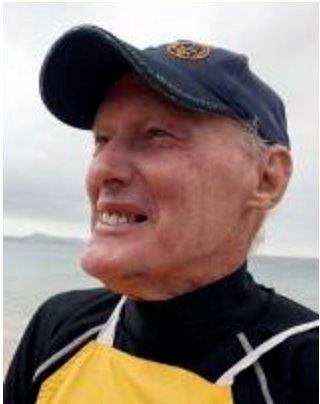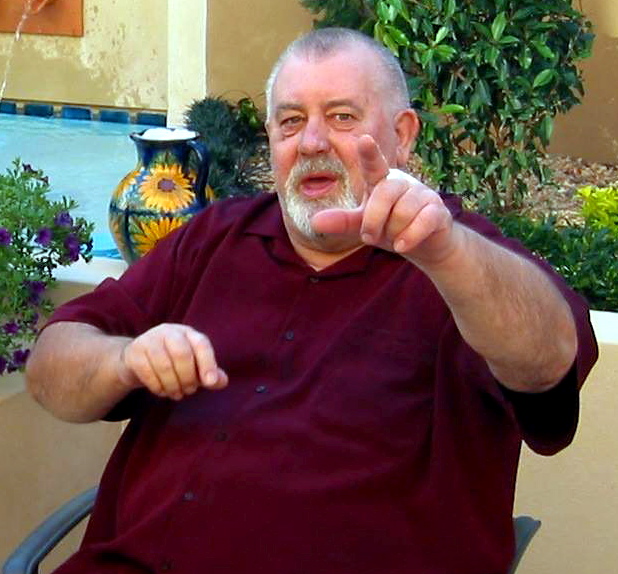Francis Nicholas ROSSI
Francis Nicholas ROSSI
New South Wales Police Force
Regd. # ?
Rank: Principal Superintendent of NSW Police.
Appointed by Earl Bathurst in 1824 and took up the post in 1825
Stations: ?
Service: From 19 May 1825 to 1834 = 9 years Service
Awards: ?
Born: 1776 on Corsica
Died on: 26 November 1851
Cause: ?
Age: 75
Funeral date: ?
Funeral location:
Old Saint Saviour’s Cemetery, Goulburn ( behind Goulburn Gaol ) in a large vault of the Rossi family ).
Buried at:
Old Saint Saviour’s Cemetery, Goulburn ( behind Goulburn Gaol ) in a large vault of the Rossi family ).
Memorial at: ?
History:
Francis Nicholas Rossi (1776 – 1851), soldier and public servant, was born in Corsica, France, the son of Philippe François Antoine, Comte de Rossi, who, through aiding the British occupation of Corsica in 1795, lost his possessions when the island was surrendered to France in 1796 and was compensated with a pension by the British government. Rossi entered the British army in 1795 as ensign in an Anglo-Corsican battalion. In 1798 he transferred to the 69th Regiment and served in Holland. Next year as lieutenant in the 5th Regiment he served in Gibraltar and was favourably noticed for conspicuous ability.
In April 1803 he joined a regiment formed to serve in Ceylon and was promoted captain in January 1807. In 1811 he was appointed aide-de-camp to Sir Robert Townsend Farquhar who in 1812 became governor of Mauritius, where Rossi also held the civil posts of deputy-secretary to the government and collector of registration and mortgage dues. Sent to Bengal in 1815, he arranged for the transportation to Mauritius of Indian convicts. He carried dispatches to England in 1816 and in 1817 was appointed general superintendent of the convict department in Mauritius. Through fear that the scattered working parties of convicts might incite the slaves to rebellion, Rossi enforced rigorous discipline. In 1822 he married Antoinette Geneviève Sornay, by whom he had two sons, Francis Robert Louis (b.1823) and Alexander Philip (b.1828). Rossi left Mauritius when Farquhar’s governorship ended in 1823 and in August 1824 accepted the post of superintendent of police in New South Wales, offered him by Earl Bathurst.
Rossi took up his duties in Sydney on 19 May 1825, replacing D’Arcy Wentworth. He reorganised the Sydney police on a system somewhat similar to that of the Bow Street police office in London. Through his own tireless efforts he made the force more efficient, although continuously hampered by inadequate funds and recruits of poor quality; even worse, control of the colony’s police forces was divided between the benches of magistrates outside Sydney, the officers of the mounted police, and the head of the Sydney police. In appointing Rossi, Bathurst intended to carry out a recommendation of Commissioner John Thomas Bigge that the police of the whole colony should be under one central authority. However, Governors Sir Thomas Brisbane and (Sir) Ralph Darling postponed the change. Rossi remained, therefore, executive head of the Sydney police only, although he had authority to correspond directly with the rural benches of magistrates and was himself a police magistrate. He felt the weight of his duties and in May 1827 was temporarily appointed to the less arduous post of comptroller, and in December acting collector of customs in Sydney. Despite Darling’s earnest request, this appointment was not confirmed and in 1829 Rossi resumed duty with the police. In 1833 the Sydney Police Act (4 Wm IV, no 7 NSW) introduced a new system, the application of which Rossi felt was too onerous for his health, already impaired by heavy duties. He obtained a year’s leave during which he was permitted to sell his army commission on condition that he retired from the police.
After retirement in November 1834 he lived on his property Rossiville in the Goulburn district. He had long believed himself a British subject, first because George III had assumed the crown of Corsica in 1794, and second because of his long service in the British army. In 1843, however, he found that he was still an alien in the eyes of the law and became anxious about his right to own land. On the representation of Governor Sir George Gipps in May 1844, the Colonial Office authorised the issue of letters of denization to Rossi. When the legal competency of denizens and naturalised aliens to hold land in the colony was questioned in 1845, Rossi’s case was noticed by the governor as one of particular hardship. To relieve the situation, an amending Act (11 Vic. no 39 NSW) was passed by the Legislative Council in September 1847 and given royal assent in October 1848. Rossi died on 26 November 1851.
Throughout his career in New South Wales, Rossi was surrounded by discreditable rumours. However groundless, they adversely affected his status as a magistrate and his influence on the Sydney police. For example the House of Commons was told in 1826 that he had instructed soldiers in Mauritius to ignore any indications of slave-trading; he was exonerated after a board of magistrates in Sydney examined the accusations and heard his explanation. Another harmful rumour was that his appointment in Sydney was a reward for personal services to George IV. Rossi, it was alleged, had been sent to Italy in 1819 with the secret commission to obtain evidence for the royal divorce and, under the pseudonym ‘Majorca’ or ‘Majocchi’, had been an important witness against Queen Caroline. No firm evidence substantiated the rumours but they persisted in Sydney, and the words ‘non mi ricordo in Queen Caroline Trial’ were noted against his name in a members’ list of the Australian Club compiled by Phillip Parker King in 1844. Rossi was involved in a local scandal when allegations of malpractice as a magistrate were brought against him in the Supreme Court in 1826. In giving judgement, the chief justice absolved Rossi from corrupt motives, but because his conduct had been irregular he was not allowed costs.
Some critics thought him unsuited for his post in Sydney because of his foreign origins and accent, and his inability to understand the nature of English law and customs. Bathurst himself seemed to doubt Rossi’s suitability and gave Darling authority to transfer him to another post if he saw fit. However, Darling was well satisfied with Rossi’s conduct, and Brisbane and Sir Richard Bourke commented favourably on his zeal and energy. In suggesting eligible names for a proposed local order of merit in 1844, Gipps included Rossi and bore high testimony to his character and to his long, honorary service on the Goulburn bench.
http://adb.anu.edu.au/biography/rossi-francis-nicholas-2610
[alert_yellow]FRANCIS is NOT mentioned on the Police Wall of Remembrance[/alert_yellow] *NEED MORE INFO
[divider_dotted]
Funeral location: ?
[divider_dotted]
FURTHER INFORMATION IS NEEDED ABOUT THIS PERSON, THEIR LIFE, THEIR CAREER AND THEIR DEATH.
PLEASE SEND PHOTOS AND INFORMATION TO Cal
[divider_dotted]
The Sydney Morning Herald Sat. 11 September 1937 p13
There is a large vault of the Rossi family. There is no inscription on it, but it would appear that Francis Nicholas Rossi (the elder), who died 26/1/1851, was the first occupant. He was a captain in the 3rd Reg., and Principal Superintendent of Police in N.S.W.
http://trove.nla.gov.au/newspaper/article/17401602
[divider_dotted]

